Aakash is a well-known tutoring company with a long history in test-prep. It offers coaching mainly in science and math subjects for school and college entrance exams (like engineering and medical exams). It was founded in 1988 and over time has helped over 250,000 students.
This article gives insights into Aakash’s reviews, pricing, services and competitors. The goal is to help students and parents compare Aakash with other tutoring platforms and make informed choices.
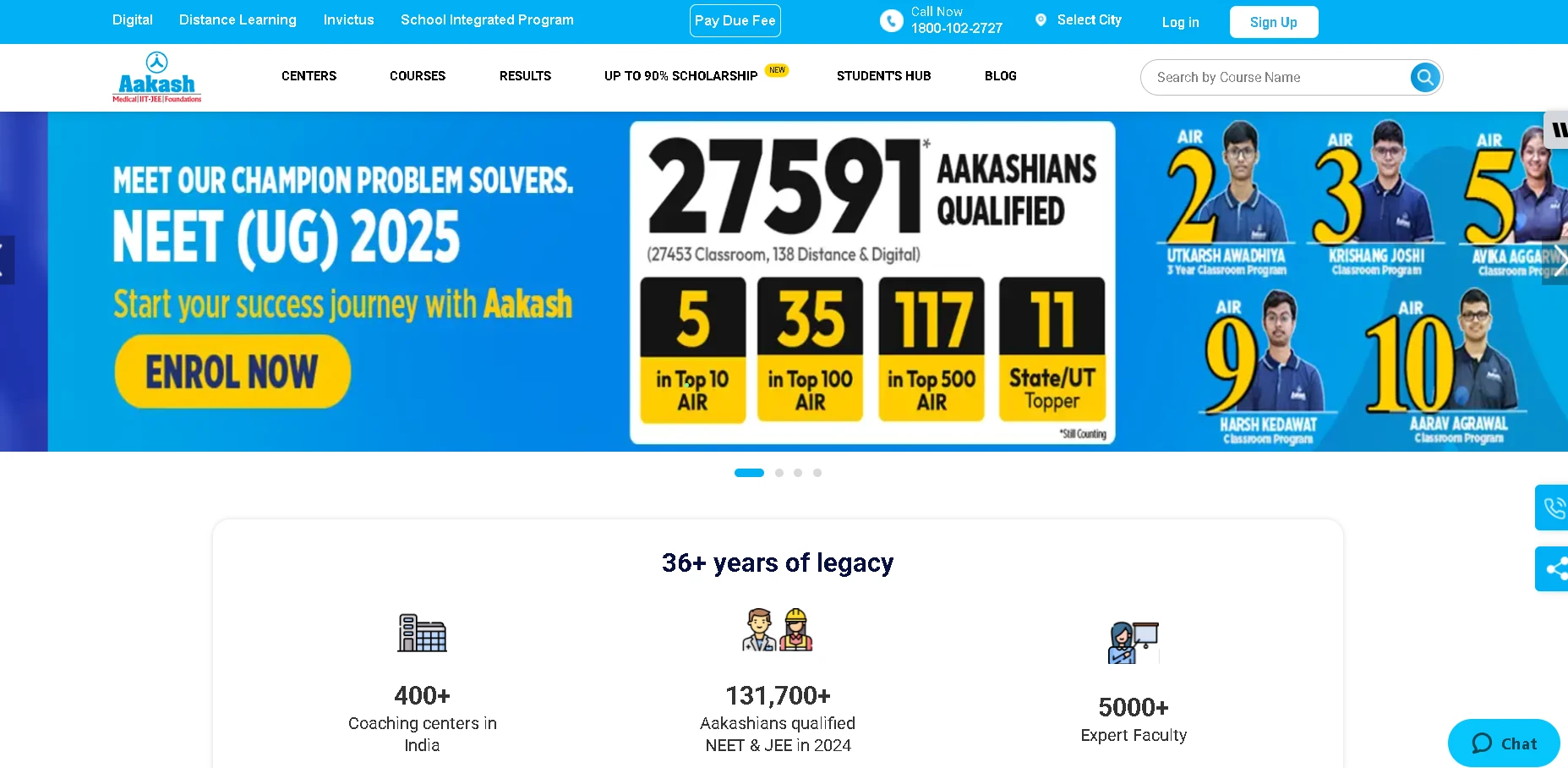
“Aakash” Reviews and Testimonials
MouthShut.com Reviews: The main consumer review site (MouthShut) has many Aakash comments. Some students praise the course materials and one-on-one doubt sessions. Others complain about high fees and teacher turnover. (Exact counts vary, but many reviews exist on this site.)
Quora / Reddit / Forums: Online Q&A threads show mixed feedback. Some students report good study content, while others feel the teaching can be inconsistent. For example, one Reddit discussion noted that Aakash has good study material but cited problems like teachers changing mid-course. These are opinions from users rather than facts.
Aakash Website Testimonials: Aakash’s own site highlights success stories (like top ranks in exams). It claims a “strong track record” and many high achievers. The site emphasizes its results and “Student First” motto. It does not list objective ratings or number of reviews.
Other Education Forums: There are no major international review platforms (like Trustpilot) for Aakash, since it is mainly regional. However, press articles (TechCrunch, etc.) note that it is a large, legitimate exam-prep brand. For example, TechCrunch mentions Aakash was founded in 1988 and serves 250,000+ students, which suggests it is a real company, not a scam.
Is “Aakash” legit? Based on news reports and its large customer base, Aakash is a real, established education company. It has not been shown to be a scam. However, user reviews are mixed: students note both helpful content and some management or teaching issues. In other words, Aakash is a legitimate tutoring brand with real offerings, but experiences vary by location.
Summary: In summary, Aakash has a long history and many students. Its own testimonials and press mentions highlight high pass rates and experience. Reviews by users are mixed: many like the study materials and test preparation focus, while some criticize high costs and strict policies. Overall, it appears to deliver on its test-prep claims, but personal experiences differ.
“Aakash” Pricing
Pricing Range
Aakash does not charge by the hour. It sells fixed courses and materials. The fees vary by program and length. For example, a two-year in-class engineering (JEE) course for 11th-grade costs about ₹305,000 (roughly USD 3,700). A two-year medical (NEET) course is around ₹350,000 (USD ~4,200). Shorter or distance programs cost less. Basic study packages (printed/e-books) start as low as ₹7,999 (~USD 100). In general, Aakash course prices range from a few hundred USD up to around USD 4,000 for premium programs. (These figures are Indian prices; international conversion shown.)
Aakash offers classroom courses, online classes (Aakash Digital), and study materials. Classroom courses (in physical centers) are usually more expensive. Online classes for 2 years cost less – for example, a two-year JEE online course is about ₹228,000 (~USD 2,800). Study materials alone (no live class) are cheapest (₹7,999 to ₹12,999, around $100–$160). Aakash also has scholarship exams (ANTHE/iACST) that can give discounts up to 100% for top rankers.
For more details on fees and courses, Aakash’s website provides a fee structure (see official fee schedule).
What students say about “Aakash” Pricing
Many student reviews note that Aakash is relatively expensive compared to other options. Some feel the high fees are justified by the extensive curriculum and branded coaching. Others say the quality does not always match the cost. For context, typical online tutoring rates (in the US) range from $20–$60 per hour, so a multi-year program costing a few thousand dollars may be seen as high. In India, exam-coaching prices like these are common. Overall, students say Aakash’s pricing is on the higher side; some feel the refund policies and actual teaching need to match that value.
Hidden costs
Aakash’s base fees include various components. According to their fee guidelines, there is a non-refundable registration fee (e.g., ₹200 for scholarship exams). In addition to tuition, students often pay for things like technology fees and exam fees. For instance, a prospectus shows that the registration fee itself is never returned. It also notes a schedule: if you withdraw early, you get most tuition back, but later you lose more. There are no obvious “surprise” add-ons, but students mention costs like study material delivery or ID card fees. Installment plans are available (0% interest) to spread out the big payments. Overall, aside from the non-refundable parts, the main cost is just the stated tuition.
How “Aakash”’s pricing works
Families usually pay course fees upfront or in parts. Aakash lets you break fees into monthly installments without extra interest. You can pay by card or bank transfer. They also run discount tests (scholarships) so top scorers get tuition off. For example, a top test rank can earn up to 90–100% off tuition. Sometimes Aakash offers group discounts or campus ambassador codes (students report seeing occasional promo scholarships online, but not a standard public promo code). In general, you pay before classes start, though Aakash does not take full payment after classes begin. The company does not publish any special categories (like military or gender discounts) – its main discounts come from the scholarship exams.
Free Trial
Aakash offers a free demo class to prospective students. Their site says: “Book your Free Demo class now!”. This means you can join a trial online class at no charge to see how it works. (You usually need to sign up with a phone number to get the demo.)
Refund policy
Aakash’s official refund policy is strict and pro-rated. As noted in their terms, the registration fee and short programs are non-refundable. If you withdraw in the first week of the course, most tuition (around 75–90%) may be returned; after that, the refundable amount drops quickly. All refunds are paid by bank transfer or check to the student’s account, within a “reasonable time” of application. In practice, students say it is hard to get any refund after classes begin. Many reviews and forum posts note that once classes start, refunds are minimal. In summary, while Aakash does allow partial refunds early on, its policy can be seen as an “eye wash” by some – students have to formally apply within strict deadlines to recover even a portion of fees. There are no generous guarantees: you generally pay up front and can only recover money by early cancellation.
“Aakash” Alternatives
Students may look at alternatives if Aakash’s model or cost does not fit them. Key alternatives include other major tutoring platforms. Each has its own pros and cons. Below is a summary of 5 such alternatives, including My Engineering Buddy (MEB).
Students often seek online tutoring alternatives for more flexible scheduling, pricing or specialized help. Here are some popular choices to compare:
Chegg
Pros: Chegg (U.S.-based) is a large education platform known for 24/7 homework help and Q&A. It covers thousands of subjects, including engineering and advanced math. Its subscription (around $15/month) gives answers to many textbook questions and access to tutors. Chegg offers on-demand chat with tutors on demand as needed.
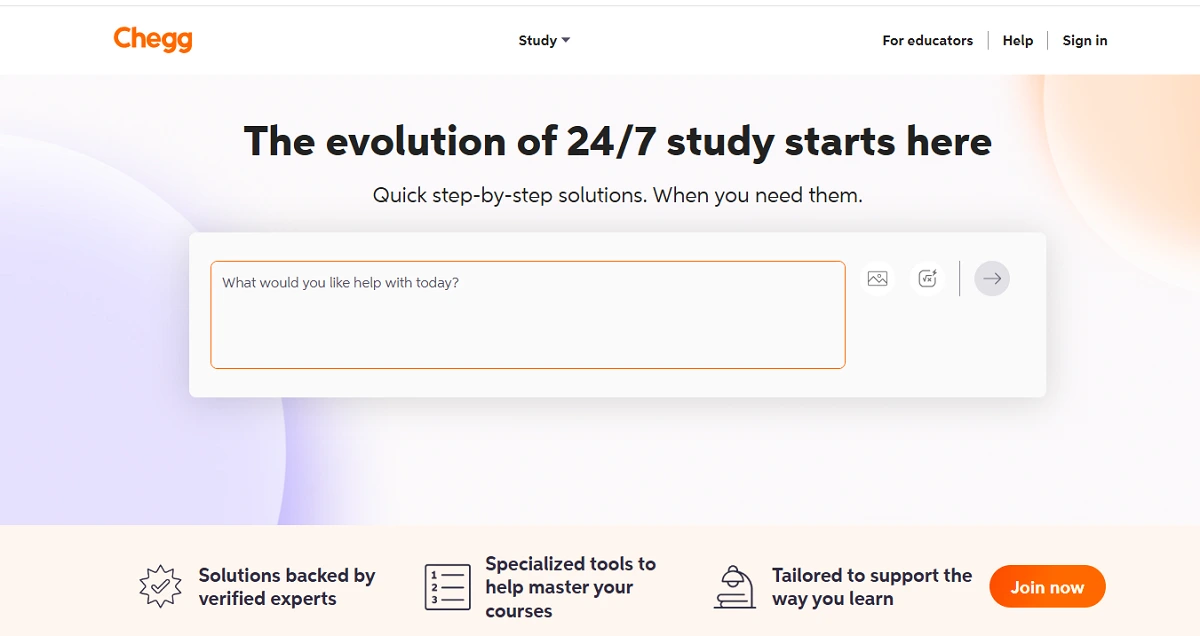
Cons: Chegg is not personalized coaching. It answers questions but does not provide long-term tutoring or live group classes. Its solutions are often automated or step-based, not interactive. The subject coverage is broad but mainly textbook-level. Because it uses a subscription model, you may pay each month even if you only occasionally use it. Chegg tutors also tend to focus on quick Q&A rather than deep exam-prep.
Wyzant
Pros: Wyzant is a large U.S. tutor marketplace. It offers 1:1 tutoring in hundreds of subjects and skills. You can select tutors by ratings, hourly rate, or expertise. Tutors set their own rates (from about $20 to $100+ per hour), so you can find both affordable and top-tier experts. The site handles payment and scheduling, making it easy to connect with a tutor. Students like that tutors can teach any subject, including niche college courses.

Cons: Wyzant’s quality varies by tutor. Higher-rated, PhD-level tutors often charge above $100/hour. For the lowest rates, tutors may be less experienced. Also, Wyzant operates mostly in North America, so if you live elsewhere you may not find many local tutors (though online is possible). Unlike Aakash, Wyzant has no structured curriculum or pre-made classes—everything is arranged privately. If you need a full test prep course, Wyzant will cost more since it is pay-per-hour. There are no fixed fee packages; it’s pay-as-you-go.
Course Hero
Pros: Course Hero is a study platform with millions of textbook solutions, class notes, and some tutoring. For a monthly fee (starting ~ $10–$40), you unlock access to solution banks and expert Q&A. It is good for finding solved problems and quick help in math, science, and engineering. It has tutor Q&A and study materials for a wide range of college subjects.
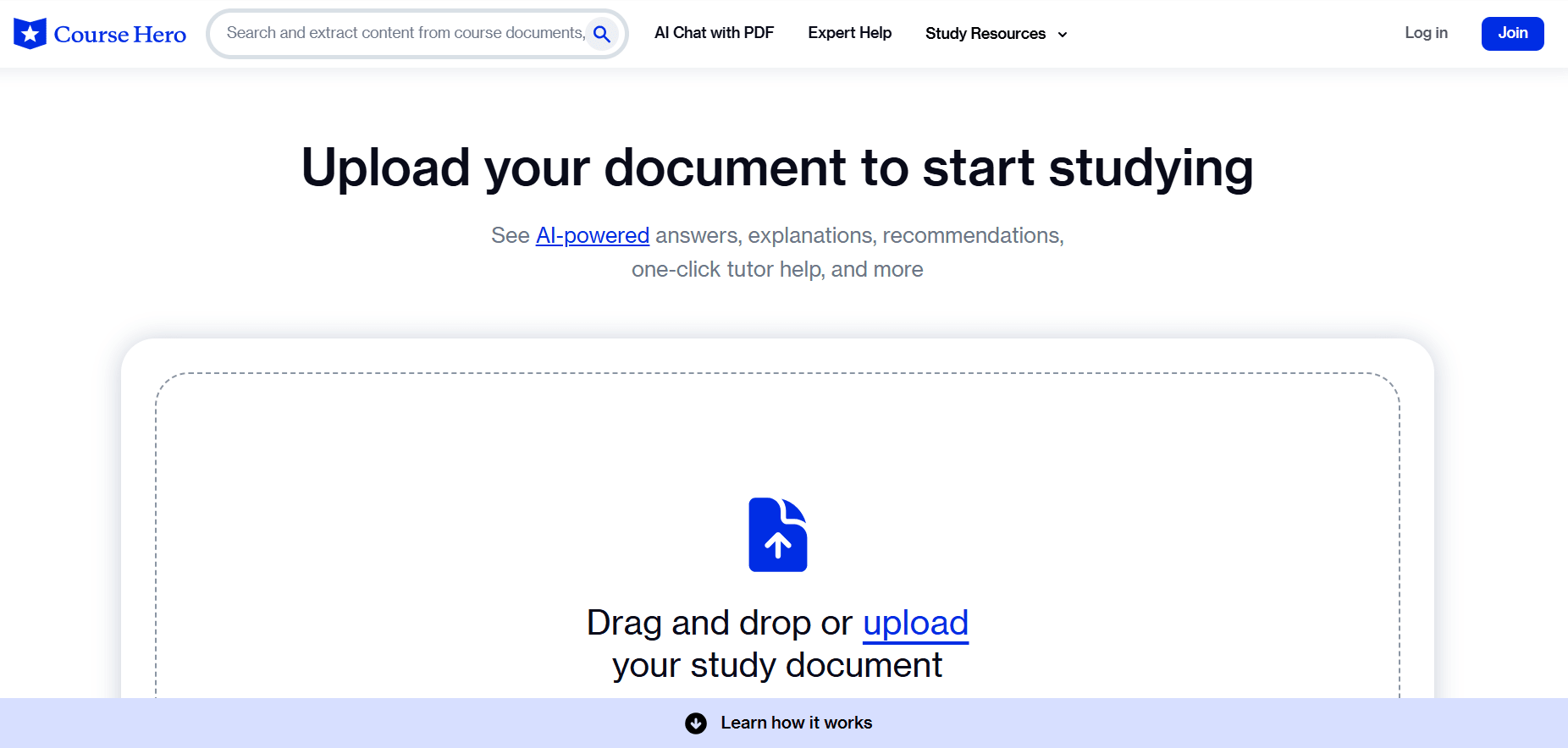
Cons: Course Hero is not a live tutoring service. It doesn’t offer live video classes or personalized lesson plans. It is mostly a library of answers and pre-recorded notes. Some top-rated tutors do live help, but often it is short text sessions. It also limits how many questions you can ask per month. For structured coaching like Aakash, Course Hero is limited; it’s more for self-study supplements. Its quality depends on user-contributed content, which can be uneven.
TutorBin
Pros: TutorBin (India-based, but accessible online) offers instant homework help from subject experts. It covers engineering, science and math subjects, similar to Aakash’s focus. Tutors are available 24/7 by phone or chat. It also offers managed weekly sessions if needed. Pricing can be cheaper: many entry-level questions can be solved at low per-question rates. The platform promises quick doubt resolution.
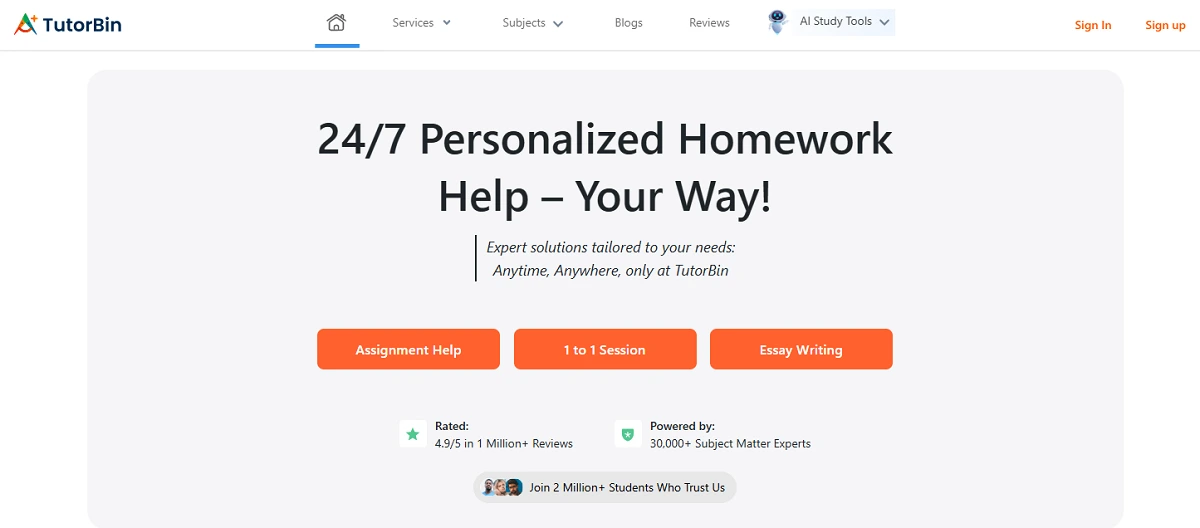
Cons: TutorBin is not a traditional tutoring center. It focuses on solving individual questions, not providing full courses. The tutor quality is mixed: some students report receiving answers without good explanation. It’s more like a help line than a teaching brand. TutorBin also advertises globally, but its main customer base is in South Asia. Compared to Aakash’s full curricula, TutorBin is lightweight and short-term.
My Engineering Buddy
Pros: My Engineering Buddy (MEB) is a 1:1 online tutoring platform aimed at engineering and advanced STEM subjects. It offers personalized help in complex topics from calculus to electronics. Tutors on MEB often have advanced degrees or industry experience. MEB’s pricing tends to be lower than big brands: many tutors charge modest rates by the hour, making extended help more affordable. MEB provides flexible scheduling, recorded sessions, and math/engineering homework help. Students say MEB offers more personalized attention and deeper coverage of hard topics than large coaching centers.
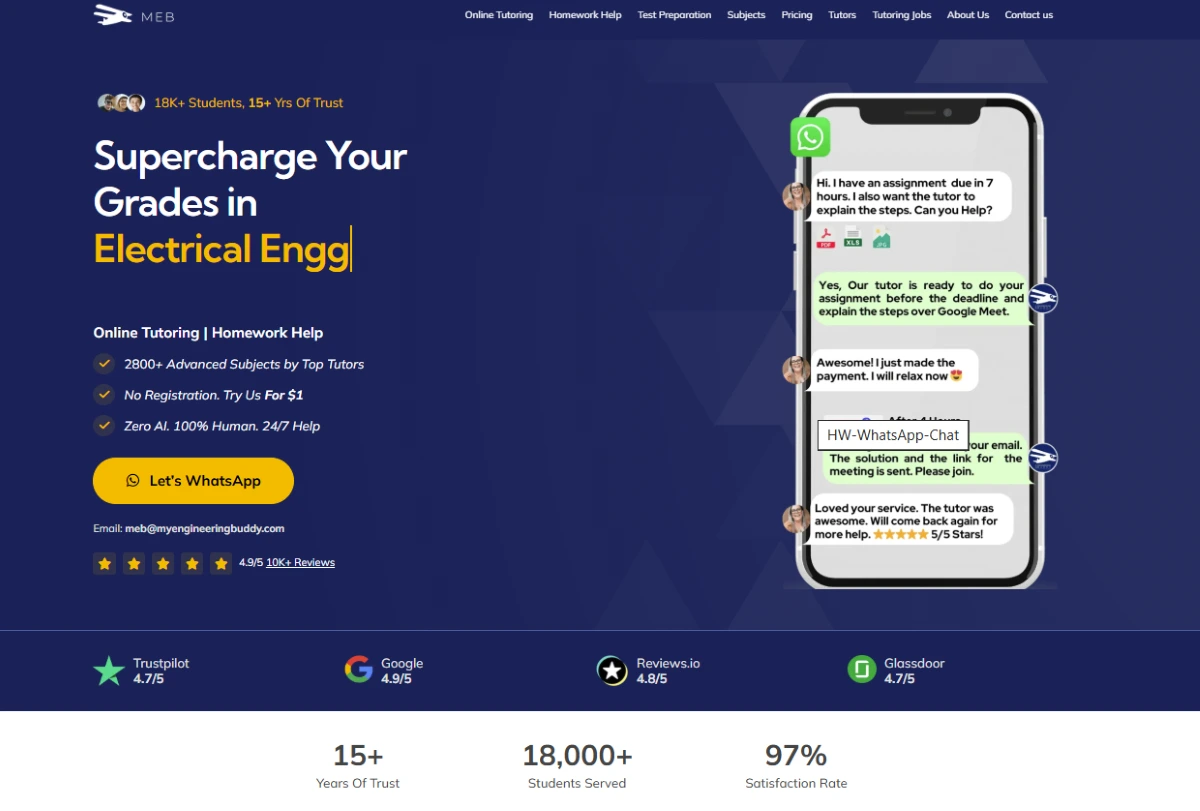
Cons: As a newer global platform, MEB may have fewer tutors than giants in each subject. It may not have as broad a set of packaged courses like Aakash’s fixed JEE/NEET programs. Some less-popular subjects may have fewer experts. Because tutors set their own availability, you have to search for available tutors rather than join a scheduled class. Also, MEB is not as well-known yet, so some users may trust established brands more.
How it Works?
For Students
To use Aakash, a student first registers on the website or at a center with basic details. After that, Aakash staff counsel the student and enroll them in a suitable course (for example, a two-year IIT-JEE course or a short test series). If online, the student uses the “myAakash” app or portal to attend live classes and view study materials. Students receive a schedule of live lectures and tests. They can join classes via computer or mobile, ask doubts during sessions, and take regular tests. The process is like signing up for a course – there is no open marketplace. Aakash assigns the student to a batch of peers rather than matching to one tutor. Students typically get a demo class (at no cost) before enrollment.
For Tutors
Tutors at Aakash are typically hired through its careers section. Many tutors are experienced coaches or top graduates. Aakash advertises for faculty positions on its website and campus drives. According to Aakash, its faculty includes alumni of institutions like MIT, Cornell, Cambridge and top engineering schools. To become a tutor, one usually needs a strong academic background in the subject and good communication skills. Aakash may have an entrance test or interview for tutors, and selected tutors are trained in the Aakash teaching methodology. Unlike a peer-to-peer platform, Aakash pays tutors a salary or hourly wage; tutors do not set their own student fees. (Aspiring tutors can explore the Aakash careers page for openings.) For starting as a tutor, one can visit the Aakash website’s careers/jobs section or contact their regional office for faculty recruitment.
“Aakash”: Company Information
Founding and background: Aakash Educational Services Limited (AESL) was established in 1988 by Dr. J.C. Chaudhry (and later co-run by Aakash Chaudhry). It started with one small coaching center and grew into a major exam-prep company.
Founders: The original founder is Dr. J.C. Chaudhry, a former science educator. Aakash Chaudhry (his son) is Co-Founder & Chief Mentor and leads AESL now. Both emphasize a “Student First” approach.
Mission & Vision: The company emphasizes student success. For example, its leaders say they remain true to the motto “Student First”. Aakash aims to use technology and its legacy experience to make quality coaching available (this is seen in its shift to online learning). Their vision is to grow into an omni-channel education platform, combining classroom and digital tools.
Scale of operation: Aakash is based in India and mainly serves that market, but also has students from elsewhere via online courses. It operates over 200 teaching centers across various cities and towns. According to the founder’s materials, it has served over 250,000 students nationwide. Aakash employs thousands of people (including tutors and staff). As of early 2025 it reportedly had around 11,900 employees. The largest student numbers come from its home country, with some international students joining online.
Types of services: Aakash offers live group classes (both in centers and online) for exam prep, plus printed and digital study materials, mock tests, and doubt-clearing sessions. It runs fixed courses (several months to years long) focused on competitive exams. It does not sell ad-hoc homework answers or resume writing. Main formats are 1:many batch teaching and test series.
Subjects offered: Major subjects include Physics, Chemistry, Mathematics and Biology (covering engineering and medical entrance exams). They also offer courses for Olympiads and scholarships, and general science/math at school level (classes 8–10). In their online offerings, they cover all key subjects needed for JEE, NEET, and board exams.
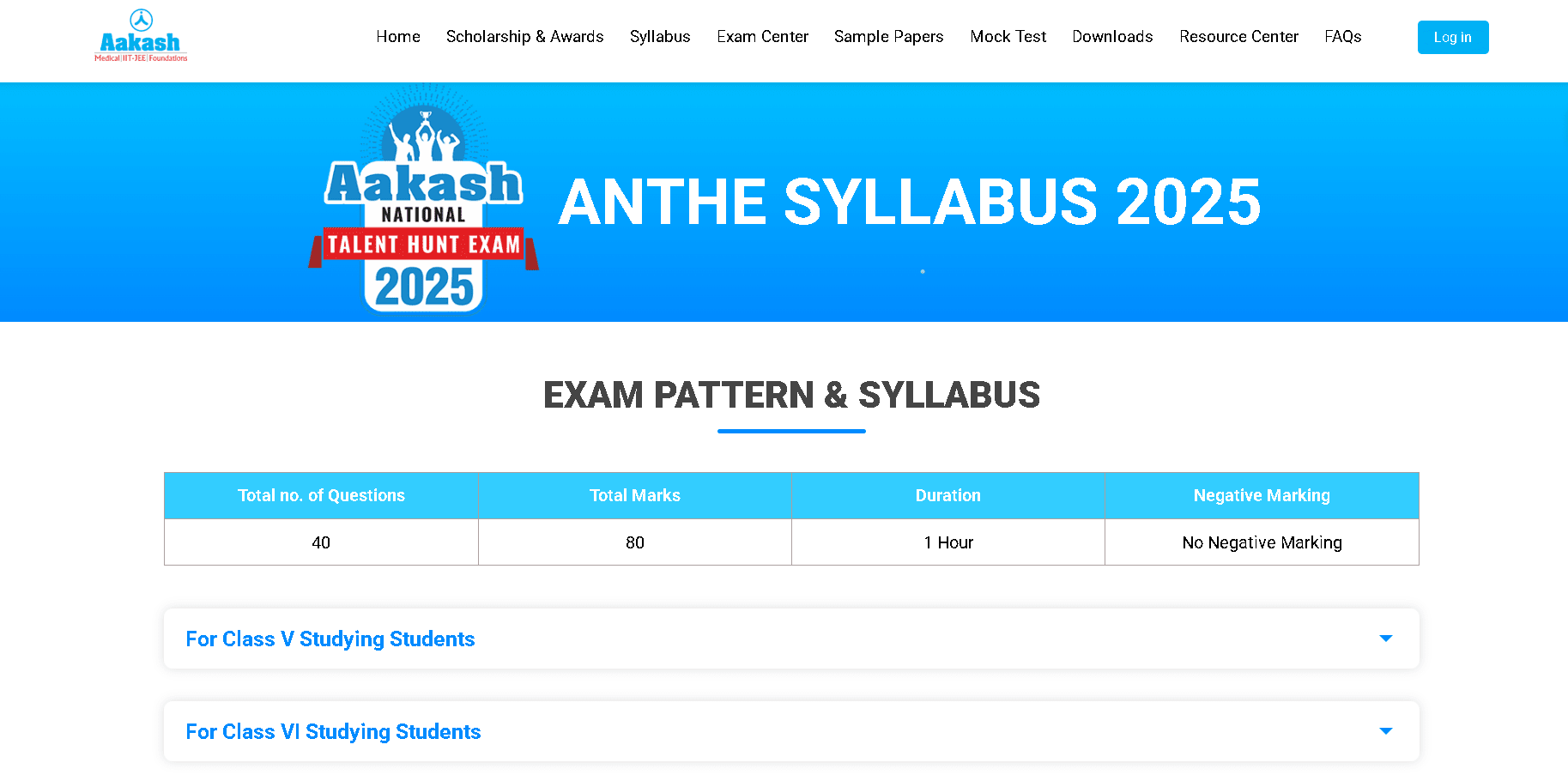
Unique features: Aakash’s strong points are its long legacy and comprehensive material. It claims over 36 years of teaching experience. It provides a structured program with regularly updated books and classroom tests. It also uses technology: for example, they have a mobile app for lectures and revision. They offer extensive scholarship exams (such as ANTHE) that can reduce fees by up to 100%. Their content is tailored to official exam patterns and they train students through routine tests and small batches.
USP of “Aakash”
- Aakash has a long legacy in exam coaching (founded 1988, 36+ years). It is known for producing top rankers (proved by its track record).
- It emphasizes a “Student First” culture, as stated by its leadership. In practice, this means lots of tests, doubt classes and a mentoring approach.
- Aakash offers full exam-focused curriculum (covering all JEE/NEET topics) with in-house study materials. Its courses are integrated (combining board and entrance prep).
- It integrates technology: they have a live-online platform (Aakash Digital) and a mobile app. They use data (like test results) to track student progress, and offer digital lectures plus printed notes.
Drawbacks of “Aakash”
- High fees and strict policies: As noted, Aakash charges large sums for long courses. Many students feel the price is high, and few refunds are given once courses start.
- Less personal attention: Aakash uses batch teaching (often 20+ students per class), so there is limited 1:1 time. Some reviews say weaker students may not get enough individual help.
- Regional focus: Aakash’s model is focused on one country (via classroom and regional online). Its content is tailored to that exam system, so it may not serve international curricula.
- Teacher consistency: Some user comments mention teacher turnover or uneven quality at branches. Because it’s a large chain, the quality can vary by location and batch.
Comparison with My Engineering Buddy
MEB’s strengths: Compared to Aakash, My Engineering Buddy offers truly global 1:1 tutoring. MEB often has more flexible pricing (tutors set rates) and may be cheaper for small sessions. It specializes in complex STEM homework (like advanced math, coding, engineering topics) where students need detailed help. MEB tutors give personal attention, so slow learners can progress at their own pace. MEB also provides recordings of sessions and uses a variety of communication (chat, video, documents). In these areas, MEB stands out against Aakash’s group-class approach.
Testimonials: Users of MEB praise its availability and personalized help. Many report getting help at odd hours and step-by-step explanations from expert tutors. This contrasts with Aakash where help is limited to scheduled class times.
Why consider MEB: Students needing deep help in niche or advanced subjects may find MEB better suited, especially if they want flexible hours and pay only per session. For complex homework or college-level problems, MEB’s one-on-one model can be more effective than a large coaching class.
Customer Support and Policies
Support responsiveness: Aakash has a central helpline and branch offices, but reviews suggest response can be slow outside office hours. They offer email and phone support, but do not have a 24/7 chat. My Engineering Buddy, by contrast, offers round-the-clock online support and multiple contact methods, which many students find more convenient.
Refunds/Guarantees: Aakash’s refund terms are strict as noted (almost no refund after classes begin). They do not advertise any money-back guarantee. My Engineering Buddy usually allows cancellation of lessons by date (subject to tutor policy) and refunds unused packages (terms depend on package). In practice, MEB is often seen as more flexible because it’s pay-per-session.
Global Reach and Localization
Aakash’s platform is mainly designed for its home country. It currently operates primarily in English (and local languages) and follows regional exam patterns. It has launched online services to reach remote areas, but it does not specifically cater to non-English speakers or custom international curricula. My Engineering Buddy, by design, is global and can serve students in many countries. MEB tutors teach in English and may offer multilingual support for students abroad. Overall, MEB is built for global use, while Aakash remains more local/regional.
“Aakash”’s future plans
Aakash is investing heavily in tech and AI. Their recent strategy is to expand digital learning: for example, they committed ₹250–500 crore towards technology and AI in their new Aakash Digital platform. This shows they plan to use data analytics and AI to personalize learning. Business analyses note that incorporating AI and data analytics into services is key for Aakash’s growth. They also aim to double their online faculty (from 150 to 500 teachers) and make online fees lower than classroom to attract more students. Other plans include expanding into smaller cities and tier-3/4 regions to reach more students. In short, Aakash’s future focus is on tech-driven online education, scholarships, and wider reach in India (while still branding itself as a “student-first” exam coach).
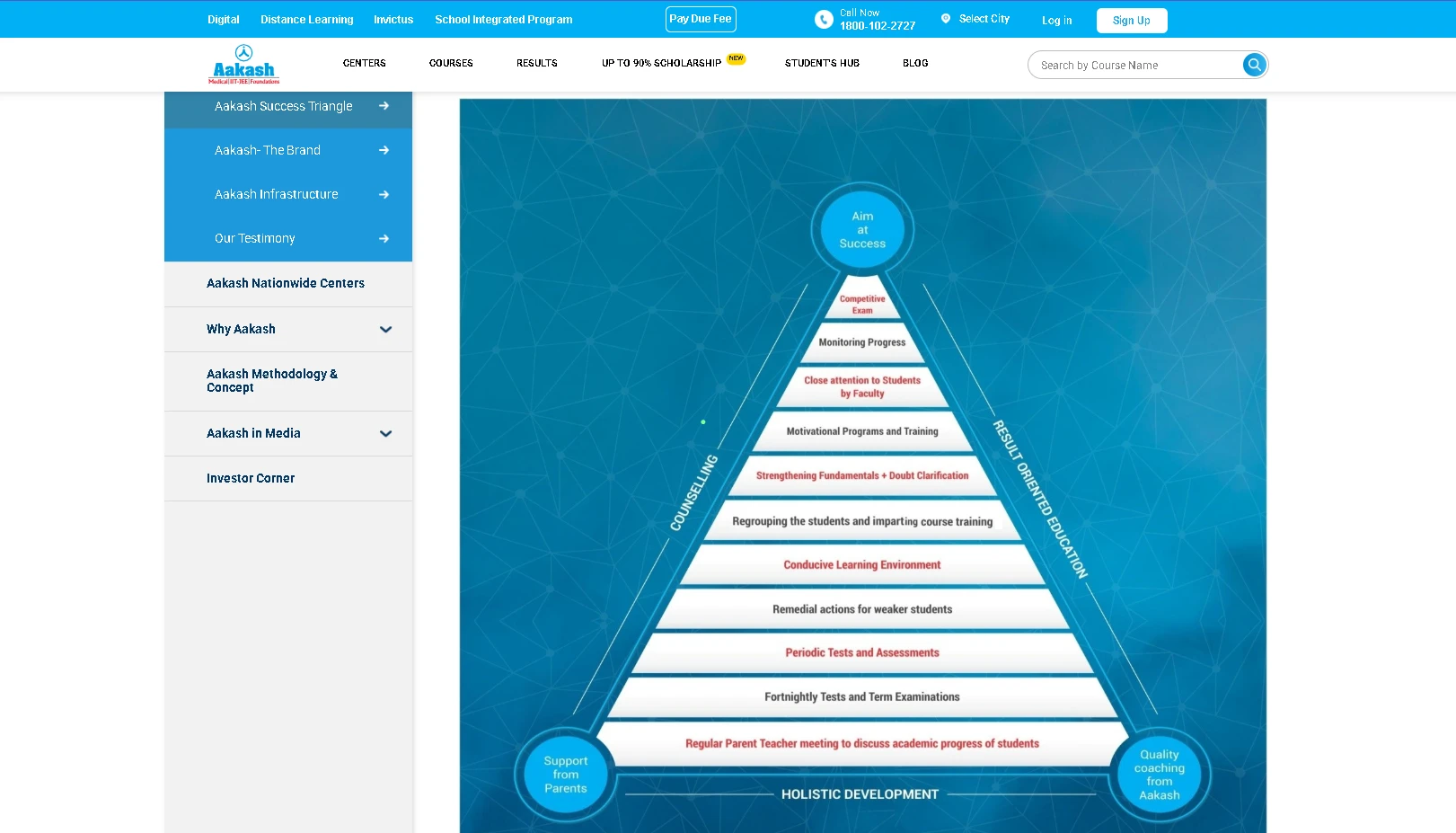
FAQs About “Aakash”
Q: How does Aakash compare to My Engineering Buddy? Aakash is a large exam-prep academy with fixed multi-month courses, while My Engineering Buddy is an online 1:1 tutoring platform. Aakash offers set class schedules and complete curricula for entrance exams. MEB offers personalized sessions anytime on demand. If you need step-by-step help in specific topics at flexible hours, MEB may fit better; if you want full exam courses and group classes, Aakash is for you.
Q: What courses and subjects does Aakash offer? Aakash provides coaching for engineering entrance exams (JEE Main/Advanced), medical entrance exams (NEET), and competitive Olympiad tests. It also has foundation programs (science and math for classes 8–10). Major subjects covered include Physics, Chemistry, Mathematics and Biology.
Q: Does Aakash have an online platform or app? Yes. Aakash Digital is their online classroom program. It offers live interactive classes, recorded lectures and study materials for all their courses. Students use the myAakash app/portal to access classes and materials. They also have online test series and doubt-solving sessions.
Q: Are scholarships or discounts available? Aakash runs scholarship exams (e.g., ANTHE, iACST). Top scorers get up to 100% off tuition fees. For example, an exam-based scholarship can cover most of the fee if you rank high. They also offer some sibling or bundle discounts internally, but the main discounts come from these merit scholarships.
Q: Does Aakash offer one-on-one tutoring? Mostly no. Aakash’s model is batch teaching (small classes) and structured courses, not individual sessions. Some doubt classes may feel personal, but generally instruction is given to a group. For true 1:1 tutoring, platforms like Wyzant or MEB are alternatives.
Q: What is Aakash’s refund/cancellation policy? If a student withdraws very early, most tuition can be refunded on a pro-rata basis; however, registration fees and late withdrawals are non-refundable. In practice, after 1–2 weeks of course start, very little (if any) fee is returned. Students must apply within set deadlines to get any refund.
Q: How well-known is Aakash? Aakash is a major name in its region’s exam coaching industry. It has thousands of past students and is frequently mentioned in education news. In its target markets (especially India), it is very well-known. In other countries, it may be unfamiliar since it hasn’t heavily marketed abroad.
Conclusion
Aakash’s strengths are its long experience, comprehensive exam-focused courses, and proven track record of student success. Its weaknesses include high fees, rigid policies, and less personalized attention for each student. Overall, Aakash is a solid option for intensive test preparation if you can commit time and money.
For complex college or technical subjects and more flexibility, My Engineering Buddy is a great alternative. MEB offers affordable 1:1 tutoring and caters to students worldwide. If you need personalized help in advanced STEM topics or flexible scheduling, consider MEB as an option to supplement or replace a large coaching class.

